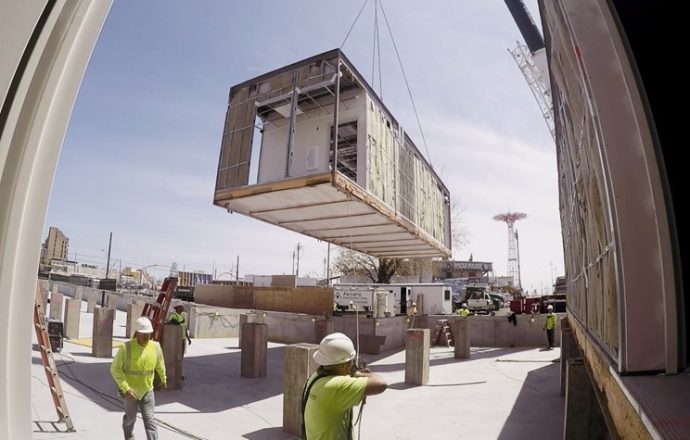It’s one of the big questions of our time. Can MMC bring social value to new developments? We think they can.
Since the introduction of the Social Value Act in 2013, the public sector has been required to consider the economic, social and environmental benefits for communities in all new developments. Offsite construction allows construction time-frames to be drastically reduced – meaning less impact on communities who have to tolerate these hostile environments.
As architects, our physical interaction with a building in relation to its expected lifetime is often very small. But this design stage (though limited in time) is unlimited in influence.
It’s in the delivery of our projects that we have the greatest impact on the communities we serve. We understand that the noise, dirt and disruption caused by a development site, the impact on local business, and the stress and tension that can be caused can often place intolerable burdens on neighbours of construction sites. Designing buildings that consider how the construction methods can minimise this impact on a community can bring huge social value.
It’s not just Box Architects who believe bringing offsite construction into the mainstream can increase social value to a project. At a recent Westminster Building Council breakfast seminar on Improving Housing and Regeneration through Social Value, we were encouraged to hear the panel advocate offsite construction as a driving force to adding much needed social value.
Here at Box Architects, we have a detailed understanding of modular construction. We know that such an approach drastically reduces construction programmes with many of the tasks and activities being undertaken in the factory, which in turn brings huge social value to a site.
So, while relatively speaking, our part in a building’s lifetime may be like the blink of an eye, the opportunity to add social value to a project and its community is considerable. As a result, it’s a guiding principal of our practice.
